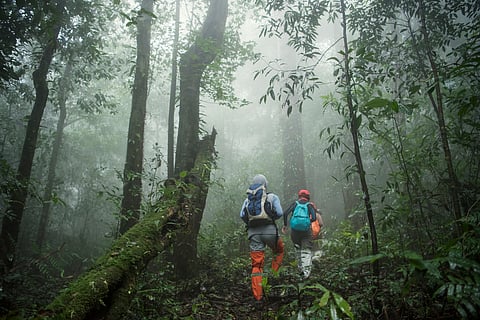
- Destinations
- Experiences
- Stay
- What's new
- Editor’s Picks
- Responsible Tourism
- CampaignsCampaigns
- Subscribe

Karnataka's Environment Minister, Eshwar Khandre, issued a directive on Tuesday instructing the forest department to impose a temporary ban on trekking activities in forest areas that lack online booking provisions. This decision comes in response to the recent presence of around 4,000 trekkers in the ecologically sensitive Pushpagiri Wildlife Sanctuary, specifically around the Kumara Parvatha peak. The influx of trekkers in this fragile environment drew criticism from wildlife activists and conservationists.
Effective from February 1, the trekking ban will remain in place until standard operating procedures are established. In a letter addressed to the principal chief conservator of forests, the minister highlighted the adverse impact of camping inside the forest on its ecology and the pollution of water bodies in the region, as witnessed in the recent incident at the Kumara Parvatha peak in Dakshina Kannada. Emphasizing the need to regulate activities like trekking, he underscored the importance of safeguarding the delicate balance of the ecosystem.
Under the Karnataka Ecotourism Board, the forest department permits only 150 trekkers in each designated location. Minister Khandre expressed understanding of the passion and enthusiasm of trekkers but stressed that such activities should not compromise the ecosystem. Unregulated entry of trekkers has led to disruptions in sensitive areas, with instances of littering, such as plastic waste, leftover food, and bottles, posing a threat to wildlife. The temporary ban aims to address these concerns in areas without providing online booking.
It's worth noting that the state government has already instituted a ban on trekking from March to September due to the risks associated with forest fires and the monsoon season. This latest directive aligns with ongoing efforts to balance the enthusiasm of trekkers with the imperative of environmental conservation in Karnataka's forested areas.
With inputs from ANI
